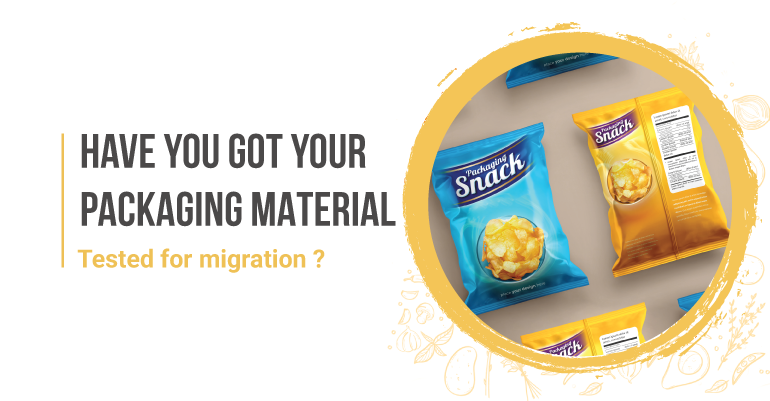
The transfer of chemical substances from packing material to the packaged object is known as migration. Migration Testing of packaged items is critical, and it is much more critical if the packaged product is food. Hazardous packing materials can cause poisonous substances to be transferred into food, posing a health risk to consumers. Food Contact Migration is a critical component in ensuring food safety and compliance. The extent to which migration occurs depends on various factors.
- Physiochemical properties of food, migrant & packaging materials
- Storage Time
- Temperature
Food Safety and Standards Authority of India (FSSAI) has issued various packaging standards which include general and particular migration requirements too. Food firms must adhere to these general and particular migration requirements for various packaging materials. According to IS 9845 regulations, all packaging materials of plastic origin shall have an overall migration limit of 60 mg/kg or 10 mg/dm2. Specific migration limits are also given in the standard for Barium, Cobalt, Copper, Iron, Lithium, Manganese, and Zinc (1.0,0.05,5,48.0, 0.6, 0.6, and 25.0 mg/Kg, respectively). Paper, grease proof paper, aluminum foil, folding box board, uncoated Paperboard Metal, and metal alloys all have their own IS requirements.
Use of newspaper for food wrapping, which is a popular practice among small businesses and street sellers has also been prohibited by FSSAI. The main reason for this is that harmful components from newspaper ink can migrate to food when they come into contact. Inks and varnishes, as well as printing areas that come into direct contact with food, should be properly analyzed for overall and particular migrations and avoided as much as possible. Recycled plastic is also prohibited in direct food contact materials under current Indian law since it poses a risk to consumer health and product safety. New advanced technology and experiments are being used to see if recycled material may be used as a direct food contact material.
Customer safety is critical, and one of the criteria and quantifiable tests to ensure product and consumer safety is migration testing.

Migration testing is available at a number of laboratories and institutes in India, including SGS, Intertek, IIP (Indian Institute of Packaging), and CFTRI.




